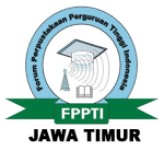Strategy of National Archives of the Republic of Indonesia (ANRI) in Improving Service Quality: A Case Study of Sub Directorate of Archive Services
Downloads
This study discuss about the strategy of National Archives on improving the quality of archival services. The main problems of this study are how the strategy of Sub-Directorate of Archives Services on improving the quality services and what the factor that can influence the quality services. This study aimed to describe the services' strategy that is undertook by National Archives of The Republic of Indonesia. This research's method is qualitative-descriptive through a case-study approach. The conclusion of this research shows, are: Develop of human resources through the delegation to enroll some education and training, ISO 9001:2008 certification about Management Quality's System, integrated static archives services' innovation, usage of technology, synergy of institutions, service of static archiving usage facilitated, and efficiency of archive services time's period. The factors that influence the improvement of quality services are human resources, tools and infrastructures, and the availability of the archive.
Downloads
Indonesia. (2008). Undang-Undang No. 14 Tahun 2008 tentang keterbukaan informasi Publik.
Laksmi. (2012). Interaksi dan interpretasi makna. Bandung: Karya Putra Darwati.
Puspita Rini, M. (2015). Standar pelayanan arsip statis. Jakarta: Subdirektora Layanan Arsip, ANRI.
Krihanto. (2015). Mereka bicara pemanfaatan dan pelayanan arsip statis. Subdirektorat Layanan Arsip ANRI: Jakarta.
Rangkuti, F. (1998). Analisis SWOT teknik membedah kasus bisnis. Jakarta: Gramedia Pustaka Utama.
Record and Library Journal by Unair is licensed under a Creative Commons Attribution-ShareAlike 4.0 International License.
1. The journal allows the author to hold the copyright of the article without restrictions.
2. The journal allows the author(s) to retain publishing rights without restrictions
3. The legal formal aspect of journal publication accessibility refers to Creative Commons Attribution Share-Alike (CC BY-SA).
4. The Creative Commons Attribution Share-Alike (CC BY-SA) license allows re-distribution and re-use of a licensed work on the conditions that the creator is appropriately credited and that any derivative work is made available under "the same, similar or a compatible license”. Other than the conditions mentioned above, the editorial board is not responsible for copyright violation.


 57201398420
57201398420

























